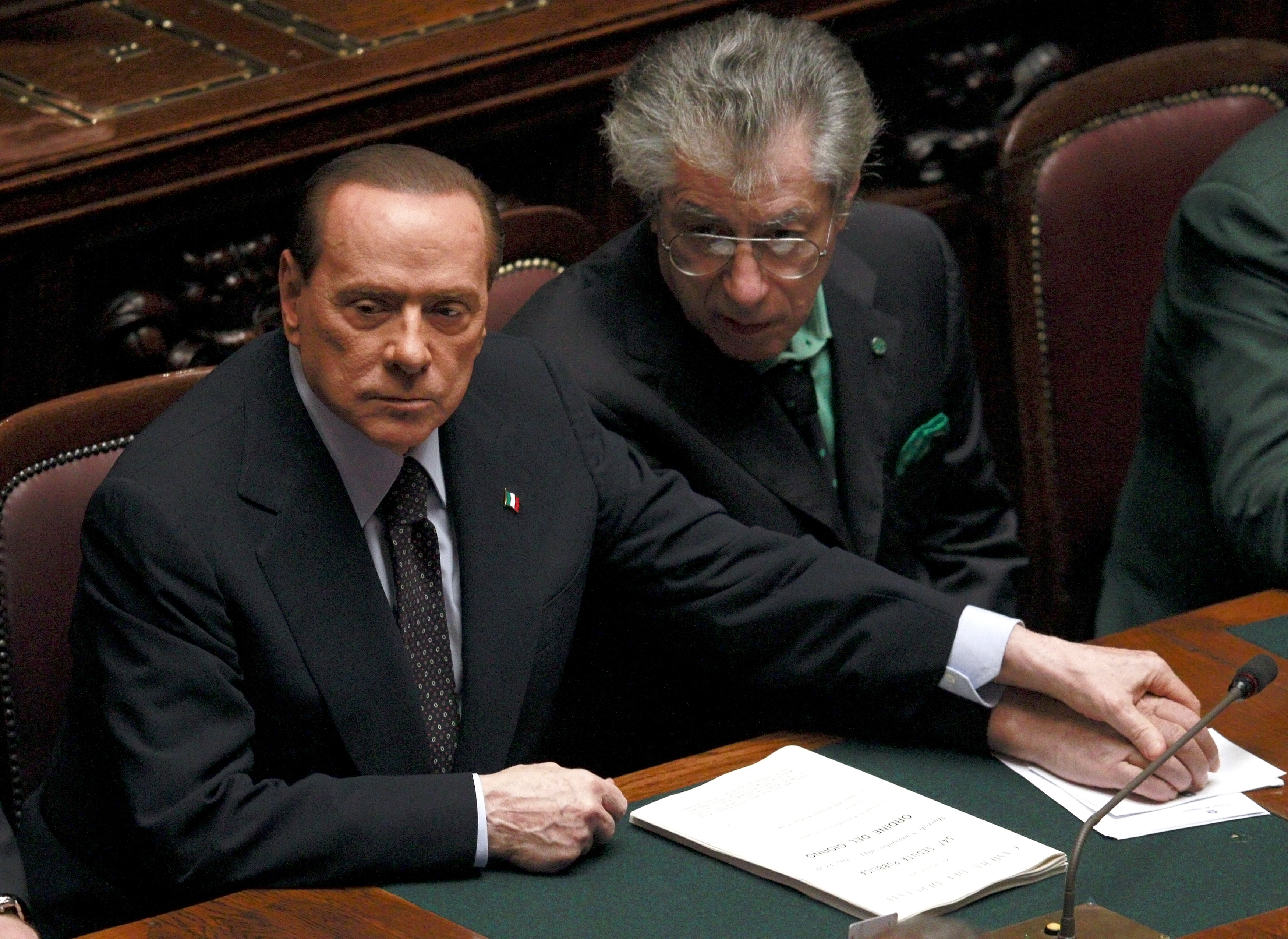Italians in Switzerland hope for a turnaround

Two dozen Italians living in Switzerland are running for seats in Italy’s parliamentary elections. Regardless of their respective ideologies, they’re calling for a new political culture in their homeland. They want a country that they can be proud of again.
“The community of Italians in Switzerland has been forgotten. But this community is a great resource that should be better acknowledged and represented,” as 34-year-old Filippo Burnelli, a candidate for the Italian protest movement “Movimento 5 stelle”, tells swissinfo.ch.
Many of Burnelli’s countrymen in Switzerland share this opinion. There is a mixture of bitterness and embarrassment for a country that is often absent from or the subject of negative headlines in the press.
“In terms of political representation, second- and third-generation Italians want one thing in particular: not to be ashamed of their origin,” says Guglielmo Bozzolini, 48 and the top candidate on the list of the left-green Sinestra Ecologia Liberta (SEL) party.
About 500,000 Italians live in Switzerland, of whom 400,000 are eligible to vote. About 20 candidates of various political persuasions are running for parliamentary office on February 24 and 25.
They are hoping to represent Italy’s European constituency, which has six seats in parliament: four in the house, two in the senate. Currently, four of those six seats are held by parliamentarians from Switzerland.
As of the end of 2012, there were 294,359 Italians living in Switzerland were established. With a share of 16.1% of the population, they represent the largest group of foreign nationals in Switzerland.
After the Italians, follow the Germans (285,379 people, 15.6%) and the Portuguese (238,432, 13.1%).
In 2006, Italians living abroad were allowed to elect their own parliamentarians for the first time; 160,000 of them cast their ballots. This represented one of the highest Italian voter turnouts worldwide.
Overall, about 400,000 Italians living in Switzerland are eligible to vote.
Italians living abroad elect 18 of parliament’s 945 representatives. The European constituency has six seats.
In the 2008 elections, four representatives from Switzerland were chosen. Three entered the house: Gianni Farina (Partito Democratico, Pd), Franco Narducci (Pd) and Antonio Razzi (Italia dei valori,). Claudio Micheloni (Pd) was elected to the senate.
Slight advantage for the left
“Italy has to put work back at the centre of its political and social life. This country needs a radical change, and that is why the left has to come back into power,” believes Bozzolini. In addition, he says the country needs to fight racism and strengthen the rights of immigrants.
The party Bozzolini is running for, SEL, is part of a centre-left coalition led by Pier Luigi Bersani of the Democratic Party (Pd). Shortly before the elections, this coalition was leading in the polls by about five points, ahead of the right wing, which is headed by former Prime Minister Silvio Berlusconi.
Of the four parliamentarians from Switzerland, three belong to the Pd party. Emilia Sina, the only woman on its ballot, says it is important “that young people have the right to education, work and a family. They need a future they can believe in.”
Representing the political centre is Franco Aufiero, aged 62, who has lived in Switzerland for 40 years. He’s campaigning for a continuation of the administration under Prime Minister Mario Monti.
When campaigning, Aufiero hardly mentions Monti’s iron austerity. He prefers to speak of “non-negotiable values such as family and religion” as well as a fair tax policy for Italians abroad. According to recent surveys, Monti’s list will get 11 to 14 per cent of the vote; that’s eight percentage points less than Berlusconi’s people.
The great unknown
The stock market as well as many European leaders worry about the possible return of Berlusconi as prime minister of Italy. But Simone Billi, coordinator of the Swiss branch of Berlusconi’s Popolo della Libertà (People of Freedom) party, is working to achieve just that.
“The international press has painted Berlusconi in the darkest colours, so many people do not understand me. But I identify with the values of the right-wing and with Silvio Berlusconi,” she says.
“We have to combat the bloated public sector, introduce performance-related pay and export national expertise,” says Billi. The 37-year-old engineer also supports her party leader’s demand for a refund of real estate tax.
This proposal has made waves throughout Italy and is likely to bring some votes for Berlusconi’s party.
Asked how it will work, Billi says: “We will consider various options, including the tax treaty with Switzerland. But it will take time. Every promise is an obligation for Berlusconi.”
Regardless of their ideological differences, the Italian candidates from Switzerland have agreed that the political culture of the country must be renewed. This is a theme for the “Movimento 5 stelle” party in particular.
The movement, founded by comedian Beppe Grillo, could become the third strongest political force in parliament, thus totally disrupting the balance of power. Spokesman Burnelli is calling for greater transparency and direct citizen participation, like in Switzerland.
More Italians in Switzerland
This is the third time that Italians abroad can elect their own representatives in parliament. The related law granting them this right came into force in 2001. In 2006, they voted for the first time; 160,000 Switzerland-based Italians headed to the polls.
Worldwide, it was one of the highest voter turnouts of Italians abroad. The voices of Italians in Switzerland were then a decisive factor for the narrow election of the centre-left coalition led by Romano Prodi.
For years, the number of Italians in Switzerland remained constant. But as a result of the economic crisis, more Italians moved to Switzerland in 2012.
“These people reflect the dark side of European integration; they are victims of precarious conditions,” notes Bozzolini. Academics, masons and pizza makers are all on the lookout for new opportunities.
But as Bozzolini points out, “The Italian government has to protect these people and guarantee conditions under which emigration is a choice and not a must.”
(Translated from German by Susan Vogel-Misicka)

In compliance with the JTI standards
More: SWI swissinfo.ch certified by the Journalism Trust Initiative











You can find an overview of ongoing debates with our journalists here . Please join us!
If you want to start a conversation about a topic raised in this article or want to report factual errors, email us at english@swissinfo.ch.